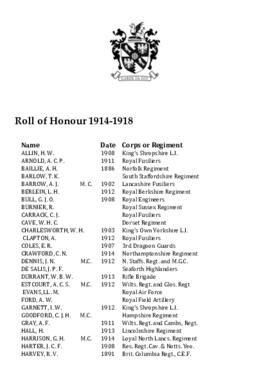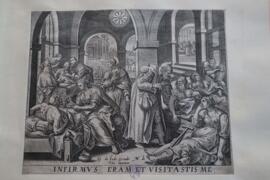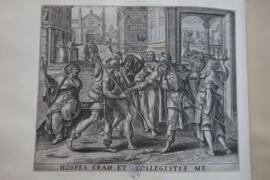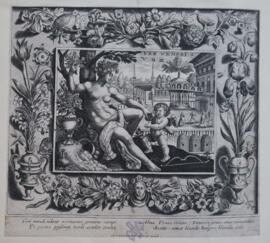Warrant from Henry Hargrave to Edward Breese with livery of seisin endorsed.
War registration certificate for George Herbert Leigh-Mallory, schoolmaster of The Holt, Godalming.
Daily entries of his life as a freshman at Magdalene College.
Daily entries of his life as a freshman at Magdalene College
Daily entries of his life as a freshman at Magdalene College
This album contains documents relating to French history from the 15th to 19th centuries, portrait prints and letters relating to American history, autographs of British notables (such as William Wilberforce) and one clipping from a 17th century dutch engraving.
Van de Weyer [née Bates], Elizabeth Anne Sturgis (1817-1878), wife of Jean Sylvain Van de Weyer, friend of Queen VictoriaThis album consists of notable 19th century figures. Many of the items are undated, therefore the date range of the album is taken from items which can be dated to a specific year.
This album contains the engraved portraits and autographs of chiefly of British aristocratic and political figures from the 19th century. Many of the items are undated, therefore the date range of the album is taken from items which can be dated to a specific year.
Many of the items are undated, therefore the date range of the album is taken from items which can be dated to a specific year.
This album contains the engraved portraits and autographs of notable 19th century Belgians of Sylvain Van de Weyer's acquaintance. Many of the items are undated, therefore the date range of the album is taken from items which can be dated to a specific year.
This album contains the engraved portraits and autographs of 19th century Belgian politicians and others of Sylvain Van de Weyer's acquaintance. Many of the items are undated, therefore the date range of the album is taken from items which can be dated to a specific year.
This album chiefly contains the engraved portraits and autographs of notable diplomats in the court of Queen Victoria, and others of Sylvain Van de Weyer's acquaintance. Many of the items are undated, therefore the date range of the album is taken from items which can be dated to a specific year.
Van de Weyer, Jean Sylvain (1802-1874), diplomatThe albums contain engraved portraits, autographs and correspondence of notable individuals chiefly from the United Kingdom, Belgium and France, but other countries are also represented. The vast majority of these items are from the 19th century, with an engraved portrait of the individual on the verso of the album page and a corresponding autograph/letter from that individual to Sylvain Van de Weyer or Elizabeth Van de Weyer on the recto of the album page. There is also a small grouping of older items relating to French historical figures.
Many of the items are undated, therefore the date range of the collection is taken from items which can be dated to a specific year.
Printed valuations of investments prepared by McAnally, Montgomery & Co.
Valuation of fixtures left at the White Bull Inn by James Cook and taken by the College. Receipt for what was taken.
Valuation prepared for the Master and Fellows of Magdalene College by Messrs Bidwell& Sons of 13 and 14 Magdalene Street, 1-6 Northampton Street and 1-2 Briggs Court.
Valuation prepared for the Master and Fellows of Magdalene College by Messrs Bidwell& Sons of 10-15 Northampton Street, the property of Messrs Warrington.
Valuation and terrier of lands at Stow Cum Quy belonging to Magdalene College (draft and final version).
These are a series of publications listing members of all the Colleges in the University of Cambridge. They include the addresses for students at Magdalene until 1980.
There are four undated letters and one page from a letter. Is has not been possible to date these.



